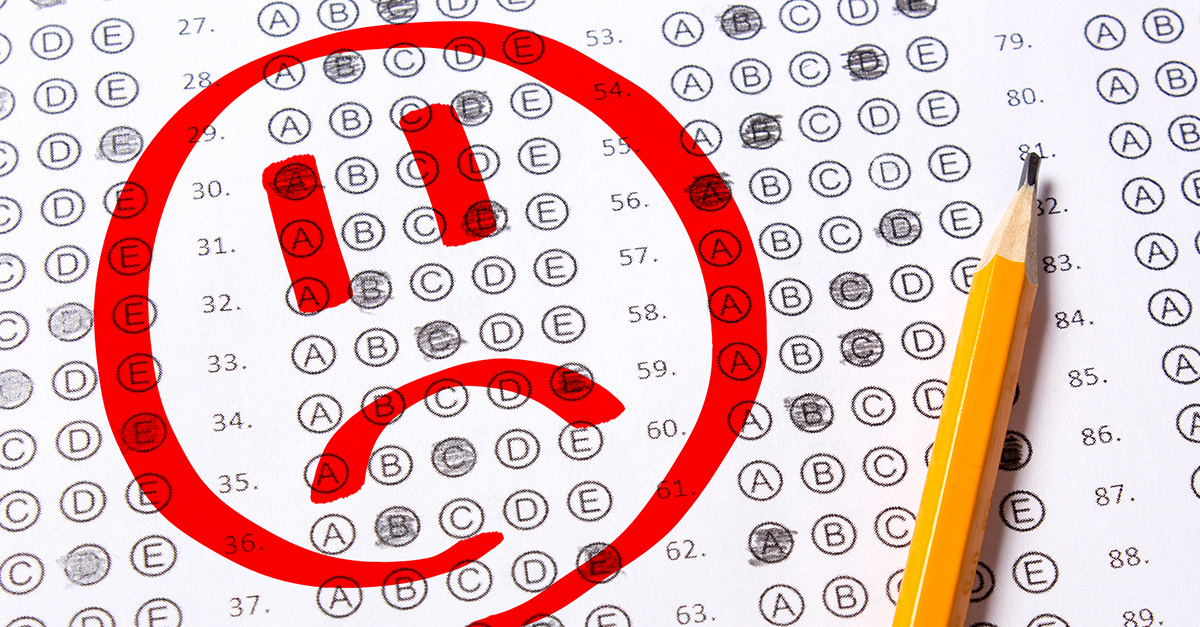


Get a free copy of Parental Rights & Education when you subscribe to our newsletter!

The Garden State follows the example of New York and California in the misguided belief that the teacher shortage and the ongoing decline in learning outcomes can somehow be fixed by relaxing teaching qualifications.
A New Jersey law that went into effect on New Year’s Day has eliminated a critical skills test for reading, writing, and math for educators seeking teaching certification in the Garden State.
The legislation will still require aspiring educators in New Jersey to hold at least a bachelor’s degree and pass specialized tests within their subject areas.
Union groups in the state supported the move to eliminate the requirements, suggesting that “the additional requirement to pass the PRAXIS Basic Skills test did nothing to elevate standards,” explaining that all teacher candidates “must complete extensive college coursework, graduate from an accredited teacher preparation program with at least a 3.0 GPA, successfully complete months of classroom teaching experience and pass a rigorous PRAXIS subject area test based on their particular area of certification.”
The New Jersey Education Association, a state-level member of the National Education Association, characterized the basic skills test as an “unnecessary barrier to those entering the profession.” Members of the teachers’ union argued that New Jersey has “very rigorous teacher certification standards” and that the removal of the PRAXIS test is uncontroversial because it defers to education experts who do not feel that the additional PRAXIS requirements are necessary.
At the same time, the congressionally mandated National Assessment of Educational Progress (NAEP) has shown significant declines in students’ math and reading levels across the country in recent years.
For example, in 2022, average scores for fourth grade students declined five points in reading and seven points in mathematics compared to 2020, with report authors describing it as “the largest average score decline in reading since 1990, and the first ever score decline in mathematics.”
Erika Sanzi, the director of outreach for Parents Defending Education (PDE), criticized the move by New Jersey officials, arguing that the purpose of the assessment is to filter out teachers who do not possess “basic competency in reading, writing, and math.”
She argued, “It is a major red flag that so many aspiring teachers fail that test, and it is indefensible that the teachers’ union and state legislature decided that the solution to that problem was to eliminate the test altogether. This decision to lower the most basic standards does not bode well for students but is a win for the unions.”
What’s more, a recent Gallup report found many reasons behind teacher shortages, not the least of which is teacher burnout. Recent Gallup data shows that K-12 teachers have one of the highest burnout rates compared to other industries, for example. And fewer and fewer college students actually want to be teachers; a 2022 report by the American Association for Teacher Education found that between 2008 and 2018, the number of people completing a teacher-education program dropped by more than one-third.
And probably with good reason. It’s harder than ever to actually be a teacher. The teaching environment hasn’t been good for some time, but since the pandemic, it’s gotten even worse, as noted by other findings within the NAEP assessment. For example, 83 percent of U.S. public schools reported that the pandemic negatively affected students’ behavioral development; 48 percent reported an increase in disrespect towards teachers and staff; and 56 percent reported an increase in student misconduct in the classroom.
Given this, observers note that eliminating key certification requirements for new teachers would probably not address the teacher shortage problem but might actually worsen it.

New Jersey isn’t breaking new ground here. New York eliminated its Academic Skills Literacy Test for teacher certification in 2017 in an effort to increase diversity, but in its aftermath, student scores have only continued to drop; the NAEP reported that fourth grade reading and math scores dropped 9 points and 11 points, respectively, across New York State between 2019 and 2022. In 2021, California also dropped its basic skills test for teacher certification to try to thwart its teacher shortages, but ironically, the state actually issued 25 percent fewer certifications in the year after the law was passed. Moreover, California’s NAEP scores continue to be well below the national average, with only 31 percent of California fourth graders in 2022 found to be proficient in reading and 30 percent in math.
It would be hard to directly correlate abolishing the basic skills tests for teacher certification with the decline in student scores, but why wouldn’t any state endeavor to have the highest possible standards for its educators, regardless of the number of open teaching positions? Surely, there are better ways for New Jersey to attract teachers than relaxing the qualifications for actually being a teacher.
Given all the evidence that the awful policies pursued during the pandemic — such as closing schools and forcing children to wear face masks — led to giant discrepancies in learning outcomes, increases in mental health issues and adverse behaviors, and negative socio-emotional development among students, why would we then want to ensure their continued decline by lowering the standards for educators?
A bigger question for New Jersey and other states is: Why are so many teachers who have managed to graduate from college with a decent GPA failing to pass a basic reading, writing, and math test? As Sanzi noted, “These are low-rigor tests. They aren’t the LSAT. So the fact that the failure rates on these tests have been so high for so long, that is a problem.”
Lowering the competency standards for educators will only result in a deepening of the education crisis in America. Shaping the minds of the next generation is a sacred responsibility with enormous consequences. A good, dedicated teacher can set a child on the path to academic and career excellence. A poor teacher (especially one that can’t pass an academic literacy test) can damage a child — academically, emotionally, and spiritually.
Do we want educators who are adequately trained and who will help our children become successful, or do we want our children to be taught by someone unable or unwilling to prove that they have even the most basic understanding of core academic skills? At the end of the day, the choice is clear for Christians: We must labor and advocate for state education officials to keep standards high for teachers — not lower them.
Many K-12 schools now embrace the secular woke agenda and are hostile to Christian beliefs and parental rights. Fortunately, parents don’t have to settle for this. Liberty University Online Academy is a K-12 program designed to educate your children in the ways of the Lord while preparing them to stand firm in their faith when they graduate. Our flexible online curriculum ensures that your student is trained at your convenience and keeps YOU the ultimate educator of your children.

Notifications